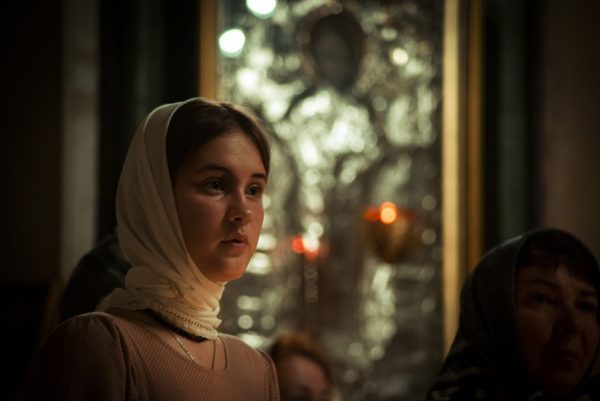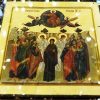How can a person know God? How can he regain his immortality after having lost it through sin and disobedience? How can he conquer sin and death in Christ? How can the rich young man inherit eternal life?
Christ gives us the answer to this when He says, “‘You shall love the Lord your God with all your heart, with all your soul, with all your strength, and with all your mind,’ and ‘your neighbor as yourself’” (Luke 10:27). The Apostle John says, “God is love” (1 John 4:16).
In his Gospel it says, “This is eternal life, that they may know You, the only true God, and Jesus Christ whom You have sent” (John 17:3). Immortality comes, then, through knowledge of God, and true knowledge comes from love.
There is no love without a personal relationship, without persons.
Christ God, then, is a person.
God Himself, then, is not a vague idea. He is a person whom we know, whom we love .We have a personal relationship with Him: in Christ, in prayer, in fulfilling His commandments, in sincere love, in our neighbor.
God told Moses in the bush that was aflame but not consumed:
“I am that I am.” God is a being of relation and we find His distinctive image in the icon of the Trinity, the icon of Abraham’s hospitality toward God, to the three angels (cf. Genesis 18:1-2).
Here we find unity in love between the three hypostases, between the three persons.
“May they all be one, as You, Father, are in Me, and I in You; that they also may be one in Us, that the world may believe that You sent Me” (John 17:21).
Here we also find unity in sacrifice because there is no true love without sacrifice: “All Mine are Yours, and Yours are Mine, and I am glorified in them” (John 17:10).
So we must find such a relationship, a relationship of love, in every human institution.
First, in the Christian family: the family is supposed to be a school of love, a school of sacrifice.
Second: we must find it in the parish and in the Church. “They had all things in common” (Acts 4:32). Likewise in a cenobitic monastery, if one’s own will is cut off– that is, self-denial as an expression of love, humility and obedience.
In the end, Christian obedience is nothing other than an expression of love. Obedience is not a military rule. What reigns in the monastery is not a rule, but love and self-sacrifice.
Here we also find the concept of true freedom in Christ, as described by the Apostle Paul.
“For you, brethren, have been called to liberty; only do not use liberty as an opportunity for the flesh, but through love serve one another” (Galatians 5:13).
All this causes us to know Orthodox spirituality as a spirit of peace, a spirit of joy and love, a spirit of gentleness, long-suffering and meekness. All these are fruits of the Spirit: all who acquire the Spirit and live according to Him, not according to the spirit of the world, receive divine consolation and a foretaste of the kingdom. Amen.
+Ephrem
Metropolitan of Tripoli, al-Koura and their Dependencies
You can follow us on Twitter, Facebook, Instagram, Telegram, or Parler

















